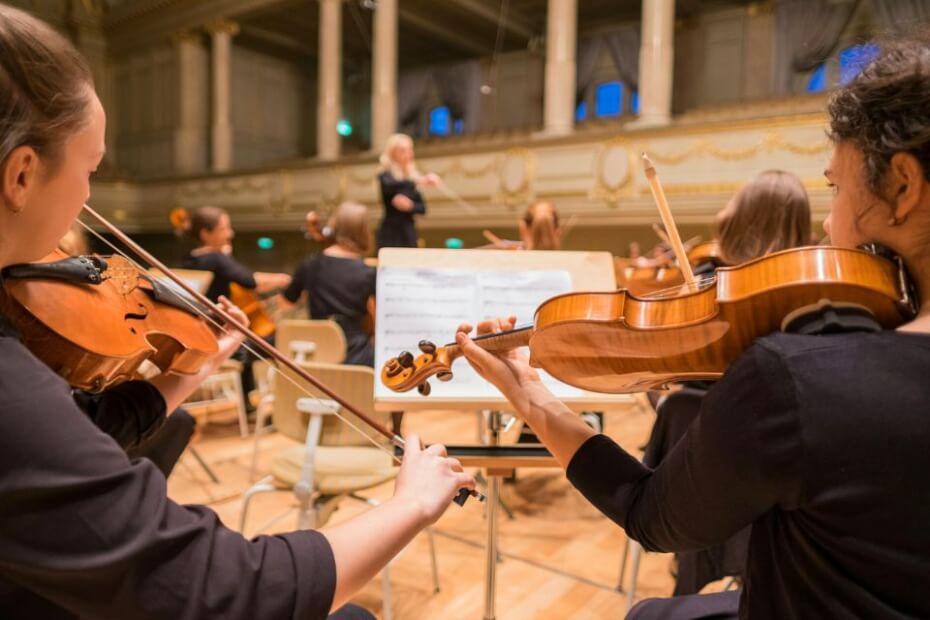
UK’s Labour Party leader, Sir Keir Starmer, had promised to explore visa-free traveling for British musicians and artists in the EU.
Since the UK departed from the EU, UK musicians and artists have faced extra costs and administrative limitations when touring in Europe.
“It’s been very tough, particularly for musicians. So anything we can do to ease that, the better,” Sir Starmer told LBC Radio, as per National World.
He added that they have “nothing really to do with immigration.”
These “brilliantly talented individuals” are simply going to another country to perform, then move on to the next country or return home.
Sadiq Khan, the Mayor of London, had also urged the government to secure a visa-free agreement for UK musicians, artists, performers, and staff working in the EU.
A mayor’s spokesperson said Brexit had caused “increased expense and a loss of business for UK performing artists.”
Khan’s spokesperson added, “Ministers must urgently work with the EU to create a simple and less bureaucratic system that prevents long-term damage to our world-leading music industry.”
European Movement UK’s Face the Music campaign
In February 2024, the European Movement UK launched the “Face the Music” campaign.
The campaign calls for UK Prime Minister Rishi Sunak to negotiate visa-free travel for British musicians and artists within the EU and vice versa.
Andrew Plant, the European Movement UK’s head of press and media, said the petition had collected almost 10,000 signatures just a week after launch.
“This is by far our most successful [campaign] launch to date,” he told Left Foot Forward of the Face the Music campaign.
Currently, nearly 25,000 have signed their support for the campaign, halfway through its goal of 50,000 signatures.
European Movement UK also works with large music organizations such as UK Music and the Musicians’ Union.
While not affiliated with them, the European Movement UK has kept them informed about the campaign’s progress.
All three organizations have been lobbying with politicians. Plant said they “have genuinely high hopes” it will be a focus issue this year or next.
Dwindling work opportunities for UK musicians, artists
A report by the Independent Society of Musicians showed that almost half of UK musicians and artists have fewer work opportunities in Europe following Brexit.
The report also revealed that over a quarter of UK musicians and artists have had no work.
Research by the European Movement UK also indicated that the British music industry is witnessing a decline in talent.
Many rising talents in the UK have moved to live and work in the EU, contributing to a cultural brain drain in the UK.
Due to rising export costs, instrument manufacturers are also losing customers from the EU.
Additionally, freelance European musicians face being shut out of work in the UK because they do not have a passport.
This has become a hurdle since the UK government requires passports and has banned using EU national ID cards when traveling to the UK.
Gus Unger-Hamilton, from number one hit band Alt-J, thinks Brexit is not “making the best of [the UK’s] amazing cultural assets.”
“We’re a pretty small country, but one thing we do have that people seem to want around the world is our culture, and music is a huge part of that,” he told NationalWorld.
Unger-Hamilton, whose band is a Mercury Prize winner, worries that the UK government expects the music industry to survive alone despite growing challenges.
He underlined that while math and science are good, the country “punches well above its weight” when it comes to culture.
“It’s going to shrivel and eventually die if this government doesn’t eventually give musicians a bit of help,” Unger-Hamilton said.
Visa- and work permit-free routes for UK musicians, artists
Before Brexit, UK and EU citizens could freely travel and work within the Schengen Zone.
Post-Brexit, UK citizens can only travel to the EU without a visa for 90 days or any 180-day period. EU citizens can visit the UK visa-free for six months.
By the end of 2024, EU citizens must obtain an Electronic Travel Authorization (ETA) before traveling to the UK.
In the same way, British citizens will need a European Travel Information and Authorization System (ETIAS) to travel to the Schengen Zone starting mid-2025.
UK citizens who intend to work and live in the EU and EU citizens who want to work and live in the UK must acquire work visas and residence permits.
Job opportunities for musicians and artists still exist in the EU, but they go to artists who are not from the UK.
The 90-day rule and required visas for British musicians and artists mean they are no longer considered for those jobs.
The UK government previously rejected a proposal from the European Commission to exempt performers from the 90-day travel rule.
Secretary of State Lucy Frazer of the UK Department for Culture, Media, and Sport wants British musicians and artists to adapt to new arrangements.
A spokesperson for Frazer said the EU’s biggest touring markets “offer visa and work permit free routes for UK performers and other creative professionals.”
“We are working across government and with European partners to make further progress,” the spokesperson added.

